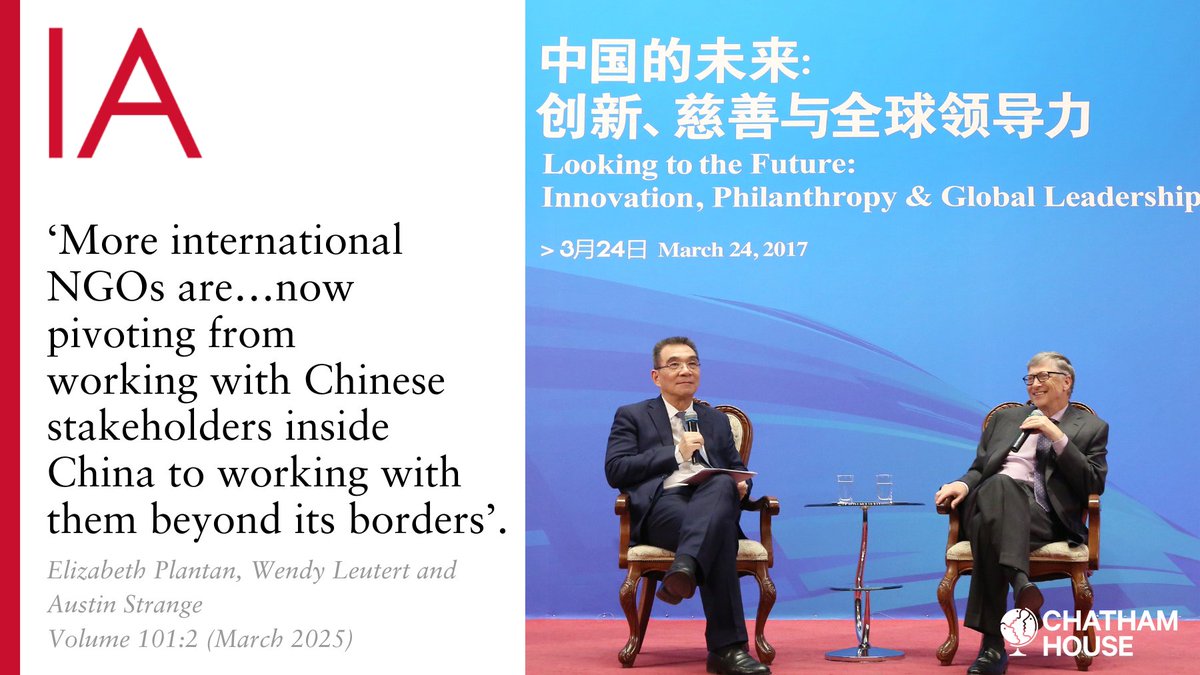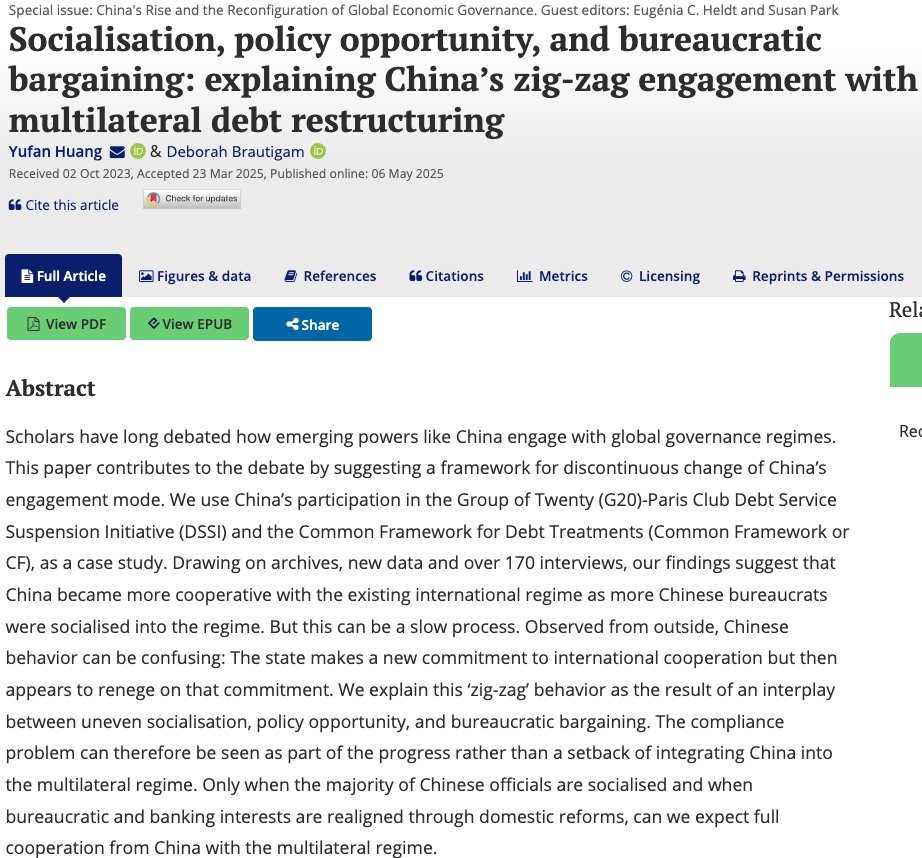
Wendy Leutert
@wendyleutert
Assistant Professor at Indiana University @HamiltonLugar School, @IUB_EALC. Tweet on China's economy, state-owned enterprises.
ID: 3092132211
http://www.wendyleutert.com 15-03-2015 20:10:12
1,1K Tweet
4,4K Followers
918 Following


🌍 Projects between international NGOs and China have been conducted in at least 31 countries, with the highest numbers found in Laos, Vietnam, Cameroon, Mozambique, Myanmar and Zambia, writes Elizabeth Plantan, Wendy Leutert & Austin Strange. The authors find 4️⃣ key fields where much






International NGOs have shifted from promoting development in China to working with Chinese actors on development issues in third-party countries. Why? Elizabeth Plantan, Wendy Leutert & Austin Strange explain this shift in their new article: doi.org/10.1093/ia/iia…


It was a pleasure to review Elizabeth O’Brien Ingleson's excellent and timely book 'Made in China: When US-China Interests Converged to Transform Global Trade' (2024) Harvard University Press tinyurl.com/ynjd24dy

1/6 New article: Deborah Brautigam & I spent quite some time doing fieldwork/interviews in past years and here it is: we wrote about the fragmented decision making in Beijing about debt relief and the learning process among (some) Chinese officials.





New podcast with Nicholas Borst on the Chinese economy. He argues that Xi Jinping's policies reflect the same goals party elites have always held, but in a changed economic and political environment. newbooksnetwork.com/the-bird-and-t…

New study by Jiayan Yan, Ziliang Deng & Klaus Meyer finds executives of firms owned by China's central government are more likely to be promoted if they support state globalization goals, esp. by investing in countries aligned politically w/ China tinyurl.com/bddxjkjz


